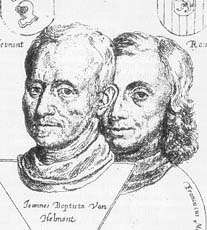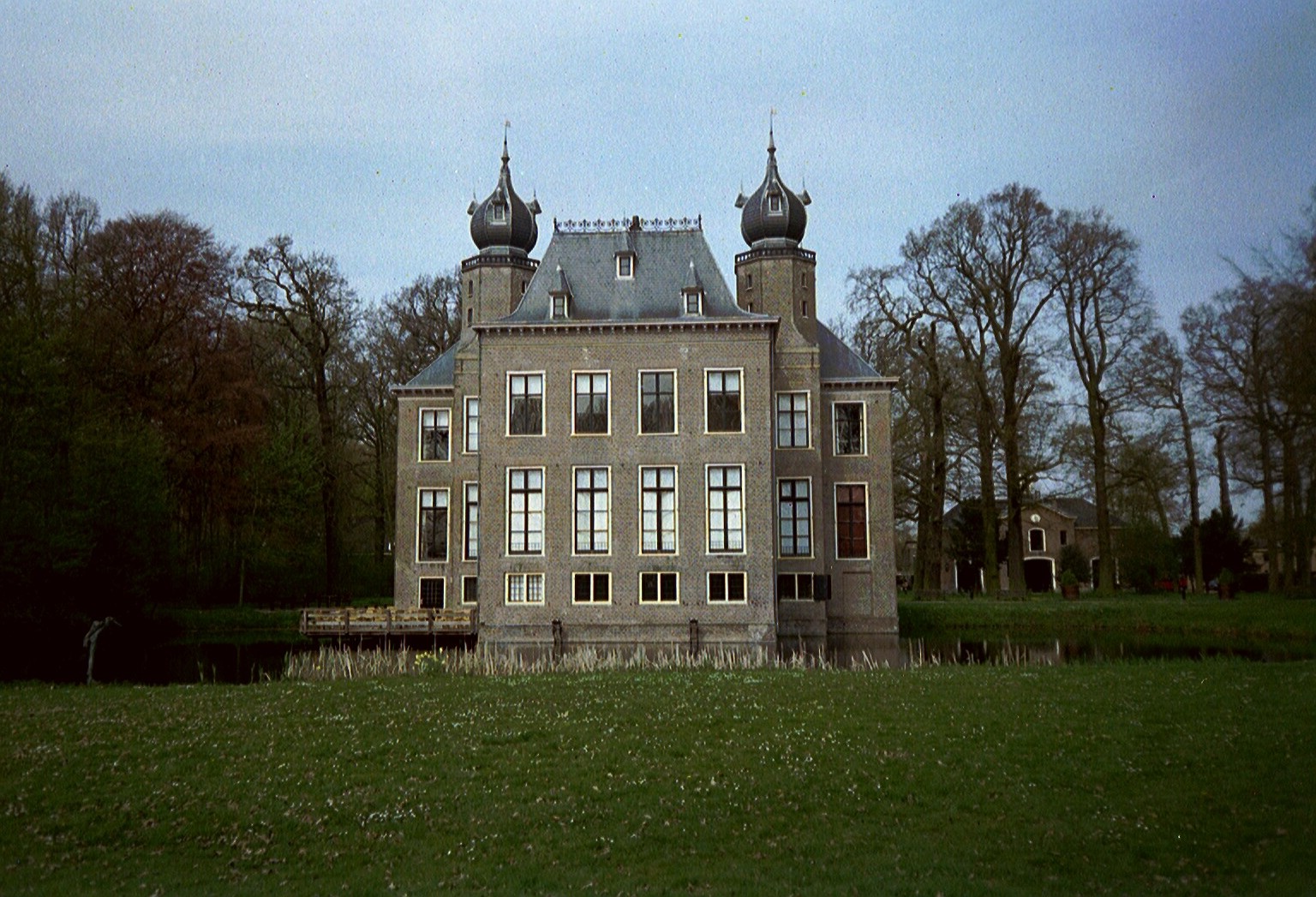|
Iatrochemistry
Iatrochemistry (; also known as chemiatria or chemical medicine) is an archaic pre-scientific school of thought that was supplanted by modern chemistry and medicine. Having its roots in alchemy, iatrochemistry sought to provide chemical solutions to diseases and medical ailments. This area of science fell out of use in Europe since the rise of modern establishment medicine. Iatrochemistry was popular between 1525 and 1660, especially in the Low Countries. Its most notable leader was Paracelsus, an important Swiss alchemist of the 16th century. Iatrochemists believed that physical health was dependent on a specific balance of bodily fluids. Iatrochemical therapies and concepts are still in wide use in South Asia, East Asia and amongst their diasporic communities worldwide. History in Europe The preparation of medicines had become a part of alchemy by the early modern period. Around 1350, John of Rupescissa advocated the extraction of the "essence" of both plants and mineral ... [...More Info...] [...Related Items...] OR: [Wikipedia] [Google] [Baidu] |
Thomas Willis
Thomas Willis Fellow of the Royal Society, FRS (27 January 1621 – 11 November 1675) was an English physician who played an important part in the history of anatomy, neurology, and psychiatry, and was a founding member of the Royal Society. Life Willis was born on his parents' farm in Great Bedwyn, Wiltshire, where his father held the stewardship of the manor. He was a kinsman of the Willys baronets of Fen Ditton, Cambridgeshire. He graduated Master of Arts, M.A. from Christ Church, Oxford in 1642.Willis, Thomas The Galileo Project. Galileo.rice.edu. Retrieved on 17 July 2012. In the Civil War years he was a Royalist, dispossessed of the family farm at North Hinksey by Roundheads, Parliamentary forces. In the 1640s, Willis was one of the royal physicians to Charles I of England, Charles I. Once q ... [...More Info...] [...Related Items...] OR: [Wikipedia] [Google] [Baidu] |
Jan Baptista Van Helmont
Jan Baptist van Helmont ( , ; 12 January 1580 – 30 December 1644) was a chemist, physiologist, and physician from Brussels. He worked during the years just after Paracelsus and the rise of iatrochemistry, and is sometimes considered to be "the founder of pneumatic chemistry". Van Helmont is remembered today largely for his 5-year willow tree experiment, his introduction of the word "gas" (from the Greek word ''chaos'') into the vocabulary of science, and his ideas on spontaneous generation. Early life and education Jan Baptist van Helmont was the youngest of five children of Maria (van) Stassaert and Christiaen van Helmont, a public prosecutor and Brussels council member, who had married in the Sint-Goedele church in 1567.Van den Bulck, E. (1999Johannes Baptist Van Helmont. Katholieke Universiteit Leuven. He was educated at Leuven, and after ranging restlessly from one science to another and finding satisfaction in none, turned to medicine. He interrupted his studies, ... [...More Info...] [...Related Items...] OR: [Wikipedia] [Google] [Baidu] |
Herman Boerhaave
Herman Boerhaave (, 31 December 1668 – 23 September 1738Underwood, E. Ashworth. "Boerhaave After Three Hundred Years." ''The British Medical Journal'' 4, no. 5634 (1968): 820–25. .) was a Dutch chemist, botanist, Christian humanist, and physician. He is sometimes regarded as the founder of clinical teaching and of the modern academic hospital along with Venetian physician Santorio Santorio (1561–1636). Boerhaave introduced the quantitative approach into medicine, along with his pupil Albrecht von Haller (1708–1777). He was the first to isolate the chemical urea from urine. He was the first physician to put thermometer measurements to clinical practice. His motto was ''Simplex veri sigillum'': 'Simplicity is the sign of the truth'. He is often hailed as the "Dutch Hippocrates". Biography Boerhaave was born at Voorhout near Leiden. The son of a Protestant pastor, in his youth Boerhaave studied for a divinity degree and wanted to become a preacher.Mendelsohn, p. 287 Af ... [...More Info...] [...Related Items...] OR: [Wikipedia] [Google] [Baidu] |
Thomas Willis - Diatribae Duae Medico-philosophicae - Quarum Prior Agit De Fermentatione 4430011502 0cec24863c O
Thomas may refer to: People * List of people with given name Thomas * Thomas (name) * Thomas (surname) * Saint Thomas (other) * Thomas Aquinas (1225–1274) Italian Dominican friar, philosopher, and Doctor of the Church * Thomas the Apostle * Thomas (bishop of the East Angles) (fl. 640s–650s), medieval Bishop of the East Angles * Thomas (Archdeacon of Barnstaple) (fl. 1203), Archdeacon of Barnstaple * Thomas, Count of Perche (1195–1217), Count of Perche * Thomas (bishop of Finland) (1248), first known Bishop of Finland * Thomas, Earl of Mar (1330–1377), 14th-century Earl, Aberdeen, Scotland Geography Places in the United States * Thomas, Idaho * Thomas, Illinois * Thomas, Oklahoma * Thomas, Oregon * Thomas, South Dakota * Thomas, Virginia * Thomas, Washington * Thomas, West Virginia * Thomas County (other) * Thomas Township (other) Elsewhere * Thomas Glacier (Greenland) Arts and entertainment * ''Thomas'' (Burton novel), a 1969 novel by Hes ... [...More Info...] [...Related Items...] OR: [Wikipedia] [Google] [Baidu] |
Alchemical Traditions
Alchemy (from the Arabic word , ) is an ancient branch of natural philosophy, a philosophical and protoscientific tradition that was historically practised in China, India, the Muslim world, and Europe. In its Western form, alchemy is first attested in a number of pseudepigraphical texts written in Greco-Roman Egypt during the first few centuries AD.. Greek-speaking alchemists often referred to their craft as "the Art" (τέχνη) or "Knowledge" (ἐπιστήμη), and it was often characterised as mystic (μυστική), sacred (ἱɛρά), or divine (θɛíα). Alchemists attempted to purify, mature, and perfect certain materials. Common aims were chrysopoeia, the transmutation of " base metals" (e.g., lead) into " noble metals" (particularly gold); the creation of an elixir of immortality; and the creation of panaceas able to cure any disease. The perfection of the human body and soul was thought to result from the alchemical ''magnum opus'' ("Great Work"). The ... [...More Info...] [...Related Items...] OR: [Wikipedia] [Google] [Baidu] |
Cambridge University Press
Cambridge University Press was the university press of the University of Cambridge. Granted a letters patent by King Henry VIII in 1534, it was the oldest university press in the world. Cambridge University Press merged with Cambridge Assessment to form Cambridge University Press and Assessment under Queen Elizabeth II's approval in August 2021. With a global sales presence, publishing hubs, and offices in more than 40 countries, it published over 50,000 titles by authors from over 100 countries. Its publications include more than 420 academic journals, monographs, reference works, school and university textbooks, and English language teaching and learning publications. It also published Bibles, runs a bookshop in Cambridge, sells through Amazon, and has a conference venues business in Cambridge at the Pitt Building and the Sir Geoffrey Cass Sports and Social Centre. It also served as the King's Printer. Cambridge University Press, as part of the University of Cambridge, was a ... [...More Info...] [...Related Items...] OR: [Wikipedia] [Google] [Baidu] |
Antivenom
Antivenom, also known as antivenin, venom antiserum, and antivenom immunoglobulin, is a specific treatment for envenomation. It is composed of antibodies and used to treat certain venomous bites and stings. Antivenoms are recommended only if there is significant toxicity or a high risk of toxicity. The specific antivenom needed depends on the species involved. It is given by injection. Side effects may be severe. They include serum sickness, shortness of breath, and allergic reactions including anaphylaxis. Antivenom is traditionally made by collecting venom from the relevant animal and injecting small amounts of it into a domestic animal. The antibodies that form are then collected from the domestic animal's blood and purified. Versions are available for spider bites, snake bites, fish stings, and scorpion stings. Due to the high cost of producing antibody-based antivenoms and their short shelf lives when not refrigerated, alternative methods of production of antiven ... [...More Info...] [...Related Items...] OR: [Wikipedia] [Google] [Baidu] |
Rasayana
In early ayurvedic medicine, ''rasāyana'' (Pali and Sanskrit: रसायन, "path of essence") is one of the eight areas of medicine in Sanskrit literature. The 11th-century Persian scholar Abū Rayhān Bīrūnī noted an Indian science named ''Rasāyana'', focused on restoring health and rejuvenation through plant-derived medicines. Nagarjunacharya conducted experiments in his laboratory called "Rasashala" and authored ''Rasaratanakaram'', detailing alchemical transformations of metals. Al-Bīrūnī conflated the earlier rasāyana practices with rasaśāstra alchemy. Rasaśāstra utilized alchemical processes involving substances like mercury and cinnabar. This practice extended beyond metals, incorporating the preparation of medical tinctures from plants. Rasaśāstra's goals included longevity, health, cognitive enhancement, virility, and extraordinary abilities. Its historical influence was evident in the Ajanta and Ellora cave paintings, the Vishnustambha monumen ... [...More Info...] [...Related Items...] OR: [Wikipedia] [Google] [Baidu] |
Avicenna
Ibn Sina ( – 22 June 1037), commonly known in the West as Avicenna ( ), was a preeminent philosopher and physician of the Muslim world, flourishing during the Islamic Golden Age, serving in the courts of various Iranian peoples, Iranian rulers. He is often described as the father of early modern medicine. His philosophy was of the Peripatetic school derived from Aristotelianism. His most famous works are ''The Book of Healing'', a philosophical and scientific encyclopedia, and ''The Canon of Medicine'', a medical encyclopedia which became a standard medical text at many medieval European University, universities and remained in use as late as 1650. Besides philosophy and medicine, Avicenna's corpus includes writings on Astronomy in medieval Islam, astronomy, Alchemy and chemistry in medieval Islam, alchemy, Geography and cartography in medieval Islam, geography and geology, Psychology in medieval Islam, psychology, Islamic theology, Logic in Islamic philosophy, logic, Mat ... [...More Info...] [...Related Items...] OR: [Wikipedia] [Google] [Baidu] |
Galen
Aelius Galenus or Claudius Galenus (; September 129 – AD), often Anglicization, anglicized as Galen () or Galen of Pergamon, was a Ancient Rome, Roman and Greeks, Greek physician, surgeon, and Philosophy, philosopher. Considered to be one of the most accomplished of all medical researchers of Ancient history, antiquity, Galen influenced the development of various scientific disciplines, including anatomy, physiology, pathology, pharmacology, and neurology, as well as philosophy and logic. The son of Aelius Nicon, a wealthy Greek architect with scholarly interests, Galen received a comprehensive education that prepared him for a successful career as a physician and philosopher. Born in the ancient city of Pergamon (present-day Bergama, Turkey), Galen traveled extensively, exposing himself to a wide variety of medical theories and discoveries before settling in Ancient Rome, Rome, where he served prominent members of Roman society and eventually was given the position of perso ... [...More Info...] [...Related Items...] OR: [Wikipedia] [Google] [Baidu] |
Robert Boyle
Robert Boyle (; 25 January 1627 – 31 December 1691) was an Anglo-Irish natural philosopher, chemist, physicist, Alchemy, alchemist and inventor. Boyle is largely regarded today as the first modern chemist, and therefore one of the founders of modern chemistry, and one of the pioneers of modern experimental scientific method. He is best known for Boyle's law, which describes the inversely proportional relationship between the absolute pressure and volume of a gas, if the temperature is kept constant within a closed system. Among his works, ''The Sceptical Chymist'' is seen as a cornerstone book in the field of chemistry. He was a devout and pious Anglican and is noted for his works in theology. Biography Early years Boyle was born at Lismore Castle in County Waterford, in the far south of Ireland, the seventh son and fourteenth child of Richard Boyle, 1st Earl of Cork, the 1st Earl of Cork ("the Great Earl of Cork") and Catherine Fenton Boyle, Catherine Fenton. Lord Cor ... [...More Info...] [...Related Items...] OR: [Wikipedia] [Google] [Baidu] |






